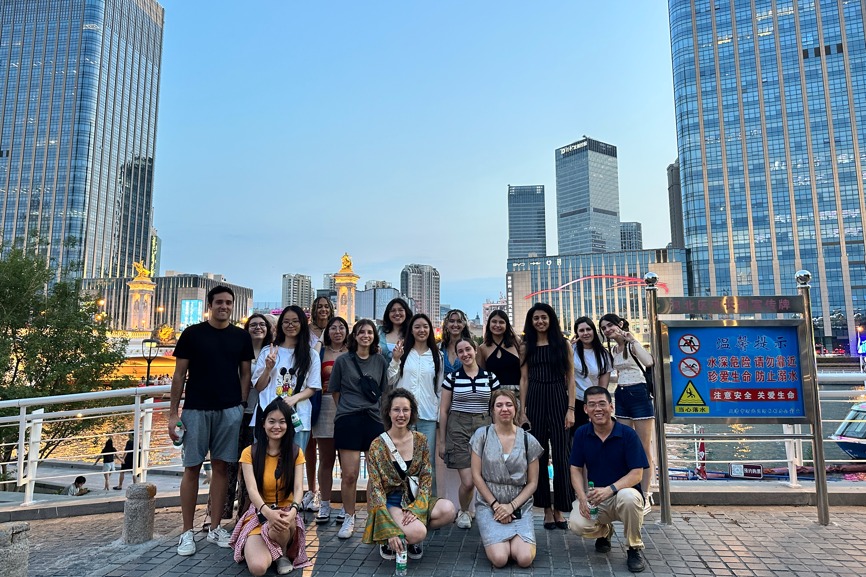'Passage interviews' serve as info outlet

Senior officials from China's top court and procuratorate will join other heads of government bodies as well as deputies and political advisers from all walks of life in responding to reporters' questions on major public concerns in "passage interviews" on the sidelines of the two sessions.
Passage interviews got their name because they usually take place on walkways leading to the main hall of the Great Hall of the People before or after plenary meetings of the National People's Congress and the National Committee of the Chinese People's Political Consultative Conference.
The interviews began in years past as reporters waited for ministers to obtain comments on their way to or from meetings.
In 2016, passage interviews became a standard way for key officials to better connect with the public. Since then, they have become a common practice for some heads of government bodies to address matters that most concern the public on the sidelines of the two sessions.
Last year, such interviews started to feature a wider range of legislators and political advisers from all walks of life, many from the grassroots.
Thirty heads of government bodies answered questions during passage interviews last year. All were televised and livestreamed.
The practice will continue this year, according to a news release from the media center of the two sessions. Also, senior officials from the Supreme People's Court and Supreme People's Procuratorate will engage in the interviews for the first time.
Passage interviews have become increasingly popular with the public.
"I tried to watch all the passage interviews live on my phone last year," Wu Tian, a private business owner in Beijing, said on Saturday. "It's like the ministers are explaining their plans to me face-to-face. What they say is important for my business decisions. Every word counts."
Many plans discussed during last year's interviews have come to pass. Li Xiaopeng, minister of transport, said during a passage interview last March that a transportation network had been planned in the Xiongan New Area to support its development.
On Dec 1, construction of Xiongan's train station started. It will be connected with five high-speed and intercity railways. The State-level new area in Hebei province will serve as a development hub for the Beijing-Tianjin-Hebei economic triangle.
On March 19, Li Ganjie, minister of ecology and environment, said the ministry was working on a three-year plan to fight air pollution. He also vowed to significantly reduce the concentration of tiny PM2.5 particles.
The plan was revealed by the State Council on June 27, and the PM 2.5 concentration in Beijing-Tianjin-Hebei in 2018 dropped 11.8 percent year-on-year, the ministry said in January.
- China expands low-orbit internet network with new launch
- AI can help create global citizens, intl English educators say
- Math labs unveiled in 2025 World AI conference
- Shi Yongxin under probe for alleged criminal offenses
- Seal carving exhibition opens for Beijing Central Axis' first heritage anniversary
- Hawaiian students and teachers experience Hainan culture




































